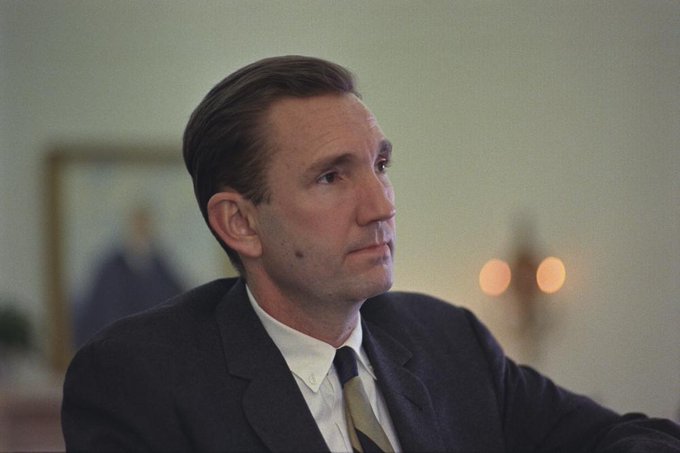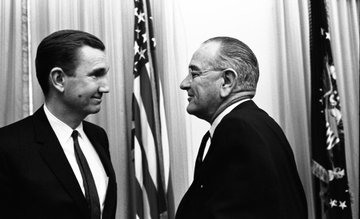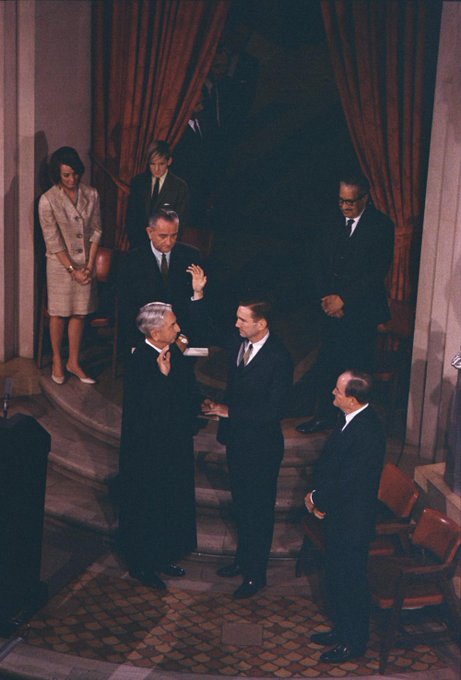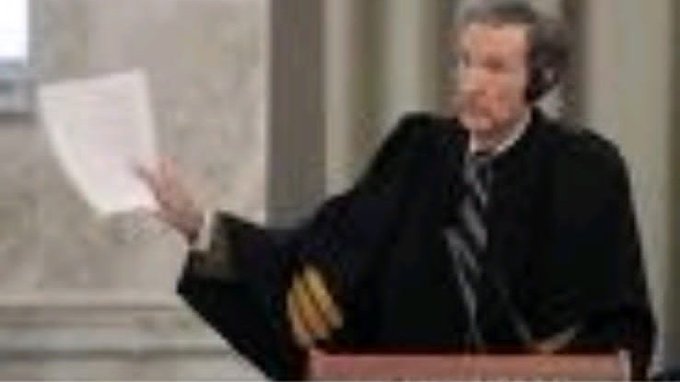The comedians at THE ECONOMIST open an article with this laugh getter, "ETTING INTO Iraq has never been easy." Are your sides splitting yet? As though getting into Iraq was the problem? 18 years and the US still can't get out of Iraq.
There was a meet-up this week -- virtual because the US government doesn't care enough -- to meaninglessly talk about the ongoing US military presence in Iraq. PRESS TV speaks with Sabah al-Akili ("Iraqi security expert") about the meaningless talk and how the US government is not serious about leaving Iraq:
Staying in Iraq would enable the US to weaken the regional countries so it can advance its pro-Israeli agendas, including the so-called "deal of the century," a hugely pro-Tel Aviv plot hatched by Washington, the analyst stated.
The Americans, he added, were trying to impose their will on the Iraqi people, using certain figures and political factions, who favor continued US military interference, towards the purpose.
He advised that the withdrawal talks had to come up with a timetable outlining the manner of the troops' withdrawal, otherwise they were "worthless," and also urged that the Iraqi parliament speaker pitch in the efforts that could help enact the law mandating the forces' pullout.
The government, too, has to act on the parliamentary legislation, otherwise various political factions can take action to impeach or overturn it, Akili said.
Nevertheless, the expert expressed certainty that Iraqis' will was "stronger than that of the occupier" and that the US would eventually turn Iraq into its "own graveyard."
The American forces would not try to engage with Iraqi resistance groups directly, but the groups have Coordination Council that has vowed they "would take action if the Americans' insisted on staying."
So far, he noted, Americans have been being warned against continuing their military presence in Iraq by means of various attacks that have taken place on their convoys, but such attacks could expand in scale to target their bases if necessary.
The United Nations ratifications entitle Iraqis to confront those occupying their homeland, Akili said, and underlined that the Iraqi groups were equipped with advanced weapons as well as surveillance and reconnaissance devices.
Hassan Ali Ahmed (AL-MONITOR) offers this take:
Mahmoud al-Rubai, the spokesman of the Sadeqoun movement — which is the political wing of Asaib Ahl al-Haq — issued a statement about the strategic talks that said, “Provided that their numbers, missions and whereabouts are known, there is no objection to the presence of advisers for training and development purposes, as well as military technicians, according to the real need for the Iraqi armed forces, their weapons and their equipment, which is applicable in various countries of the world, and we are not against intelligence and information cooperation with countries of the world in order to fight IS and fight terrorism.”
“We leave the matter to be determined by the competent authorities,” Rubai said.
A source close to Iraqi militias told Al-Monitor that the commander of the Iranian Quds Force, Ismail Ghaani, was in Iraq on April 4-6. He is said to have met with several militia leaders and to have put pressure on them to stop any acts outside of the Iraqi state.
This comes in conjunction with the resumption of negotiations between Iran and world powers on finding a pathway to revive the 2015 nuclear deal. It could be that Iran does not want to ruin the negotiations before they get started.
Although Iran was not willing to enter any direct dialogue with the United States on the nuclear deal, it finally accepted indirect talks with the United States in Vienna this week.
Prior to the US-Iraq strategic talks, the Coordinating Committee of the Iraqi Resistance Factions, which includes all Iran-backed militias, issued a statement demanding a clear timetable for departure of all US forces from Iraq. The committee said it supports the strategic talks only if they lead to setting a clear timetable for a US departure, and that otherwise militias will return to attacking US bases and forces in Iraq.
Again, getting into Iraq has always been much easier than getting out. On the topic of the militias, and Mustafa Salim (WASHINGTON POST) report:
But while some U.S. officials have viewed the militias as little more than proxies in a campaign to extend Iran’s regional influence, these groups are often deeply embedded in the fabric of Iraqi society, having emerged out of its own turbulent history.
Some have roots that date back decades. Their official network, known as the Popular Mobilization Forces, or PMF, was born in 2014 with widespread support across Iraq’s Shiite south, after tens of thousands answered calls by Iraq’s prime minister and by Grand Ayatollah Ali Sistani, Iraq’s highest Shiite religious authority, to fight the Islamic State militants.
And now, as some Iraqis are souring on these Iran-backed militias, the grievances extend well beyond Tehran’s influence to include concerns about what these groups have become and the promises they have broken.
Today, the militias are economic powerhouses and enforcers of the political regime. They are marbled throughout the country’s ruling institutions, and when mass protests erupted against the government in October 2019, Iran-backed armed groups quashed them with deadly force. Human rights groups have frequently accused them of abuses.
“It made me regret that I allowed my brother to fight. I pray every day to live long enough to look out for his children,” said Abdullah, 58, a former militia volunteer who like others interviewed spoke on the condition that his last name be withheld, out of fear of retaliation. An Islamic State sniper killed his brother, Haider, in an ambush in the fall of 2014, he said.
In the corner of their family home, Haider’s son, Karrar, sat listening, tense knees pulled to his chest as he stared at the ground.
Clare Daly and Mick Wallace are two members of the European Parliament who recently visited Iraq and met with Hashed al-Shaabi. Ireland's THEJOURNAL.IE writes:
A TRIP BY two Irish Members of the European Parliament to visit a headquarters of a militia network in Iraq has been used in a YouTube video to promote the group.
Clare Daly and Mick Wallace visited a brigade headquarters of Hashed al-Shaabi in Iraq and criticised American foreign policy in the region.
The Pentagon regularly describes Hashed al-Shaabi as “Iranian-backed militant groups”. It is made up of between 50 and 70 separate militia groups, backed by Iran, and also known as Popular Mobilisation Forces (PMF).
The trip by the two MEPs is believed to have taken place just weeks after US airstrikes hit five of the networks’ bases, which the US Department of Defense said “housed weapons used to target US and coalition troops”.
Footage of the MEPs visit, released on the group’s YouTube channel on 30 March, shows Wallace and Daly inspecting a wall tiled with photographs of “martyrs”, before speaking to camera.
Clare Daly has responded on Twitter:
The real story of our visit to #Iraq. The only disgrace to Ireland is the criminal complicity at #Shannon in wrecking this fascinating, diverse country. Overnight experts in local Iraqi customs might also want to stop obsessing about what women choose to wear and have a listen.
Elaine Loughlin (IRISH EXAMINER) reports:
Ms Daly confirmed that the pair had met with politicians, religious groups as well as the Hashed al-Shaabi group as part of their recent trip.
"But they're actually part of the Iraqi army now, so people in the West and the EU, say these are a terrorist organisation, they are not terrorist organisations.
"They are organisations which have been through their human rights training under the Geneva Convention in terms of how to deal with civilians in conflict, for example, they've worked closely with the Iraqi army. They've been dealing with the Covid fallout, for example, they've been rebuilding schools in areas. This isn't the type of stuff that a terrorist organisation does."
[. . .]
The visit has been condemned by Fianna Fáil senator Malcolm Byrne and claimed the two MEPs are "an embarrassment to Ireland".
“These two MEPs visited a Shiite militant group that has lured gay people to their deaths. If their support for Lukashenko in Belarus and Hezbollah in Lebanon was not bad enough. They are an embarrassment to Ireland," Mr Byrne said.
He added that while, “seeking to understand issues in a conflict is a good thing, not doing due diligence on a group in advance and allowing themselves to be used as propaganda tools is foolish.”
Daly is a supporter of Julian Assange and has Tweeted:
In the 11 years since
published documentary evidence of a massacre by US military in Baghdad, the #CollateralMurder video was watched 17 million times. 17m more views than
wanted. The man who published it shouldn't be in prison.
Neil Fetherstonhaugh (Ireland's SUNDAY WORLD) reports:
Irish MEP Mick Wallace has said a trip to Iraq was an “opportunity to apologise for the role Ireland played in the destruction of their country”.
He tweeted the message as it emerged how the visit by himself and fellow MEP Clare Daly to the headquarters of a militia network in the war-torn country has been used in a promotional YouTube video for the group.
Both politicians were filmed as they inspected a wall tiled with photographs before speaking to camera during the visit to the brigade headquarters of Hashed al-Shaabi.
The video, entitled ‘Credibility and strength: This was what [the] European Parliament said during a visit to the headquarters of the Popular Mobilisation Forces’ has been viewed over 18,000 times since it was posted on March 30.
Wallace explained in the video that, "We came here to understand the people of Iraq, to understand the institutions better and to get more of a feel for the place.”
Ramsey Clark is someone who met with people to better understand issues. Gloria La Rvia, the Party for Socialism and Liberation 2020 presidential candidate, Tweets:
As 1927 was coming to a close, Ramsey was born in Dallas, Texas. He was a veteran of WWII having served in the US marines. After serving, he began attending college and would eventually graduate with a law degree from the University of Chicago Law School. He would go on to serve in the administrations of John F. Kennedy and Lyndon B. Johnson -- rising to the post of Attorney General of the US, under Johnson. Today, the LBJ Library Tweets:
After leaving the government, he began meeting with people around the world. An opponent of the Vietnam War, he traveled there. He helped the Jimmy Carter administration on talks with Iran. He was an opponent of both declared wars (though not declared by Congress) on Iraq. He opposed the war on 'terror' and spoke out against the attacks on human rights and liberties in the US and elsewhere. (Disclosure, I knew Ramsey Clark.) Abby Martin's EMPIRE FILES Tweets:
He did a lot of work in the last decades with Sara Flounders (whose most recent article for WORKERS WORLD is "NO STALLING! The only solution -- US out of Afghanistan." The two worked through the International Action Center which highlights this 2013 article by Dierdre Sinnott:
As assistant attorney general for the Lands Division, Ramsey Clark played a key role in drafting the Civil Rights Acts of 1964 and 1968 and the Voting Rights Act of 1965.
 In 1967, Clark was promoted to attorney general, becoming the first to seek the abolition of capital punishment while still in office. He ordered a moratorium on federal executions.
In 1967, Clark was promoted to attorney general, becoming the first to seek the abolition of capital punishment while still in office. He ordered a moratorium on federal executions.
In 1968, Clark declined yet another request by FBI Director J. Edgar Hoover to wiretap Dr. Martin Luther King Jr. Two days later, King was assassinated. In the uprisings that ensued, Clark threatened to prosecute Chicago’s Mayor Richard Daley if the mayor’s announced “shoot to kill” order was used.
Clark facilitated a permit for an encampment of 3,000 people on the Washington, D.C., Mall to protest poverty. The project was organized by Dr. King’s Poor People’s Campaign and carried out in the aftermath of his assassination.
Later that year, Clark opposed preventive detention in the lead-up to the 1968 Democratic Convention in Chicago. He called the indictment of Black Panther leader Bobby Seale, as part of the conspiracy Chicago 8 trial, a “scandal.”
He and Roy Wilkins investigated the police attack that killed Fred Hampton, the deputy chairman of the Illinois Black Panther Party.
While he was attorney general, many people urged Clark to resign in protest of the Vietnam War. But, Clark says, “I believed in all the causes in which I was involved, that [resigning] would have let a lot of people down.”
In 1972, several years after he left office, Clark traveled to the Democratic Republic of Vietnam. Before going, he told the audience at a NAACP convention that “Martin Luther King told me once that the Vietnam War was a civil rights issue. I couldn’t accept it then, but now I know he was right.”
As a civilian lawyer, Clark represented the Alaskan Indigenous population in its land claims against the federal government. He taught a Howard University course called “Law as an Effective Instrument of Social Change.”
The federal government threatened to prosecute Clark after he traveled to Iran in 1980 during the hostage crisis. He had also been in Iran during the lead-up to the revolution that overthrew the brutal Shah Mohammad Reza Pahlavi regime.
On April 16, 1986, warplanes took off from Lockerbie, Scotland, and attacked Tripoli while U.S. aircraft carriers shelled Benghazi, Libya. Clark filed lawsuits against the U.S. and British governments. He also opposed the recent U.S.-aided overthrow of the Libyan government.
Clark has traveled to Cuba and called for an end to the U.S.’s brutal economic blockade. He has led delegations to Cuba that brought medications that were in short supply there. He has called for freeing the Cuban Five, a group of men who came to the U.S. to stop counterrevolutionary Cuban exiles from provocations against the island nation.
Clark was part of the call for solidarity with Cuba that resulted in a historic rally organized by the International Action Center in 1992. More than 5,000 people attended the New York City event.
U.S. out of the Middle East
In 1990, Clark helped form the National Coalition to Stop U.S. Intervention in the Middle East. He traveled to Iraq in a delegation with boxer Muhammad Ali and others, then returned to Iraq in February 1991, while the U.S. was conducting 3,000 bombing sorties a day against that country.
In 1992, Clark convened the Commission of Inquiry for an International War Crimes Tribunal. The resulting report called for the formation of an organization to organize against U.S. interventions. That led to the founding of the International Action Center in 1992. In subsequent years, Clark led three large delegations to bring much-needed medicine to Iraq.
Clark has led the international IAC campaign to ban U.S. use of depleted uranium, a radioactive toxic weapon that has been implicated in Gulf War Syndrome and an increase in cancers in Iraq. Depleted uranium is also an issue in Vieques, Puerto Rico, where such weapons were extensively tested.
After the Sept. 11, 2001, attacks, Clark led demonstrations to stop the buildup to war against Afghanistan. He was instrumental in leading the massive protests organized by the ANSWER Coalition, which the IAC was a founding member of, against the ongoing “war on terror.”
For 30 years, Clark was the attorney in the U.S. for the Palestine Liberation Organization. In 2011 he led a solidarity delegation to Gaza.
Solidarity missions
Time and again, Clark has jumped on a plane to show solidarity with people who have been targeted by the Pentagon, whether in Grenada, Yugoslavia or Syria. He has led IAC fact-finding delegations to Colombia; to Chiapas, Mexico, to meet with the Zapatistas; twice to Yugoslavia during the U.S./NATO bombings; and to Sudan after the U.S. bombing of a pharmaceutical plant there.
During the Ronald Reagan/CIA war against the Sandinista government, Clark led a delegation to Nicaragua. Clark and Miguel d’Escoto Brockmann, the Nicaraguan foreign minister from 1979 to 1990, became colleagues in the struggle to stop the anti-communist Contras, a U.S.-financed proxy army, and their death squads.
Clark supported the Farabundo Martí National Liberation Front (FMLN) in El Salvador’s struggle for independence from a Washington-backed military junta. He has traveled to Venezuela and met with President Hugo Chávez, and made visits to Bolivia and Ecuador.
Clark has supported the reunification of Korea and has been involved with the defense of Jose Maria Sison, a leader-in-exile of the Philippine struggle. Recently, Clark testified at three trials against U.S. drone wars near the bases in the U.S. from which drone missions are operated.
In 2008, Clark received the United Nations Prize in the Field of Human Rights.
Abby Martin's EMPIRE FILES notes:
HUFFINGTON POST's Ryan J. Reilly Tweets:
And the United Nations' International Human Rights Commission Tweets:
x








